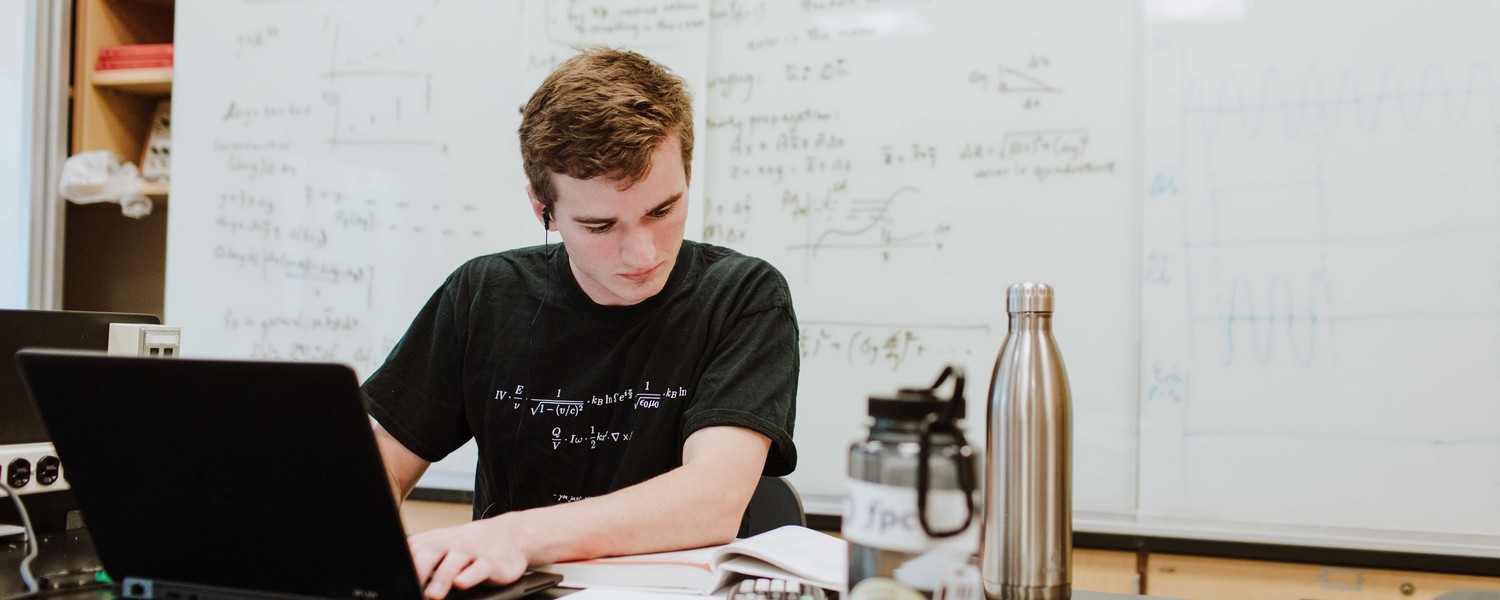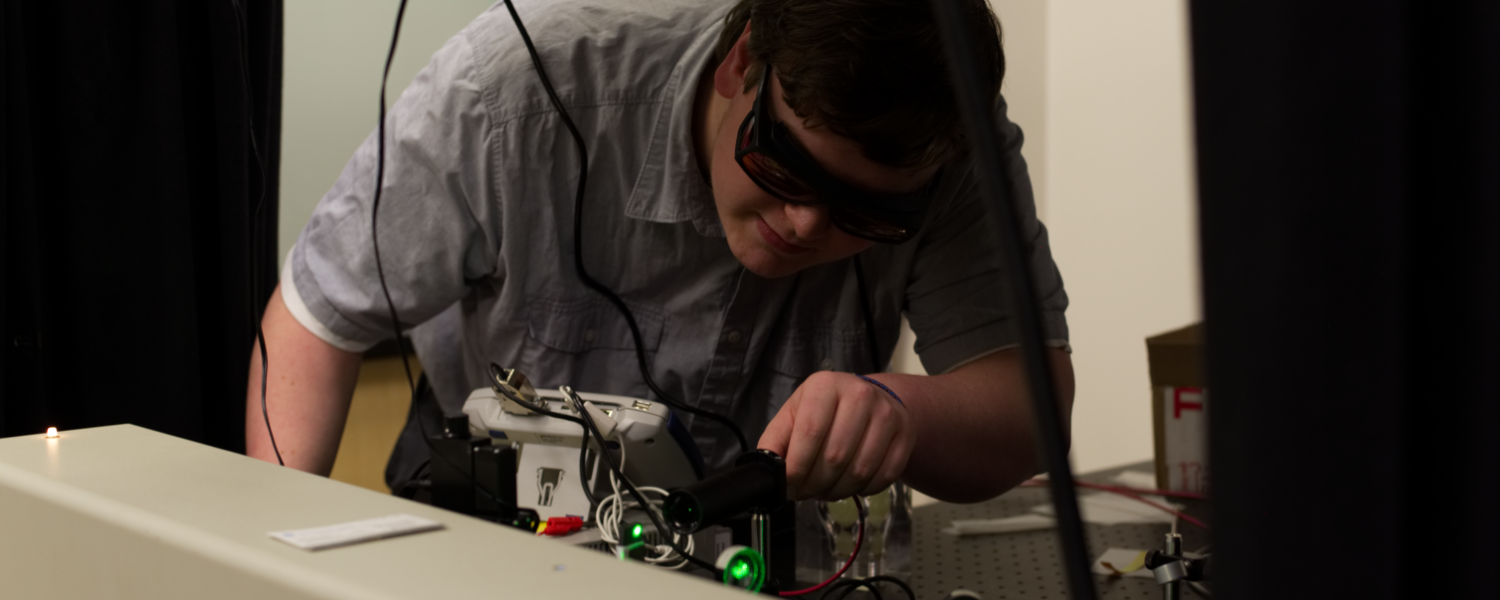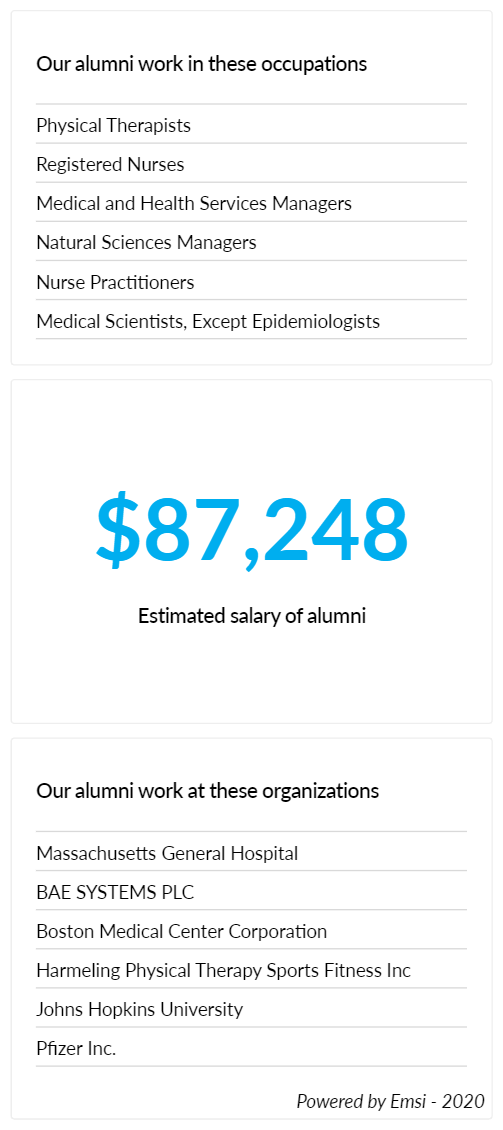

Professional Physics Concentration
If you’re interested in theory and research, a professional concentration will prepare you for graduate education or a career in the physics industry. Courses span the physics spectrum—from classical mechanics to electromagnetism, statistical mechanics and quantum physics. You will hone your practical skills in math and computers as you develop your reasoning, experimentation and critical thinking capabilities.
Why study physics at Gordon?
Physics is critical to understanding and advancing our world. As you prepare to develop groundbreaking technologies or push back the boundaries of physics, you will gain a deeper appreciation for the beauty, order and complexity of God’s physical creation. In the Gordon physics community, you’ll build supportive relationships with fellow students and professors, and participate in collaborative research with faculty in our state-of-the-art lab facilities.
What careers can I pursue with a B.A. in physics?
About half of Gordon’s physics students go straight to graduate school, while others are hired by top companies in a variety of industries. Your educational experience can be customized to fit your vocational goals:
- Graduate studies
- Data analysis
- Computer programming
- Modeling and simulation
- Government work
- Teaching
- High tech industry
- Computer engineering
- Scientific research
- Industrial R&D and engineering
- Computer hardware and software
Learn more about jobs and internships ➔
Career statistics from Physics, Biology and Kinesiology graduates:

 Information gathered through EMSI Data, which pulls mid-career earning information from multiple sources including Bureau of Labor Statistics, US Census Bureau, Online job postings, individuals’ online profiles, etc.
Information gathered through EMSI Data, which pulls mid-career earning information from multiple sources including Bureau of Labor Statistics, US Census Bureau, Online job postings, individuals’ online profiles, etc.
HEAR FROM A GRAD
Brian Landis ’14
Brian is working at UTC Aerospace Systems on advanced cargo-handling systems in wide-body jets (for both Boeing and Airbus). He’s located in North Dakota. Brian too graduated from Gordon's physics program and from USC with his Astronautical Engineering degree in 2014. Hear from others ➔
Beyond the classroom
As a physics student, you’ll participate in a yearlong research project—an opportunity to dive deeper into an area of interest together with your faculty mentor. You will also be part of a close-knit community that gathers regularly for shared meals, cheers on first-year students in their annual Robotics Competition, and always has fun physics and engineering projects in the works. Many students also choose to participate in other opportunities:
- Research Experiences for Undergraduates (REU)
- Industry internships
- Society of Physics Students: our award-winning student chapter of the American Physics Society
- Sigma Pi Sigma: a national honor society in physics
- Work on-campus as a teaching assistant or peer tutor
- Graduate with honors: present an honors research thesis (minimum GPA: 3.5 in physics, 3.0 overall)
Interested?
For more information, contact:
Dr. Greg Keller
Professor of Biology
E [email protected]
P 978 867 4852
Department Chair of Life, Health, and Physical Sciences

 Physics
Physics  Professional Physics Concentration
Professional Physics Concentration


